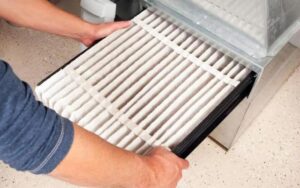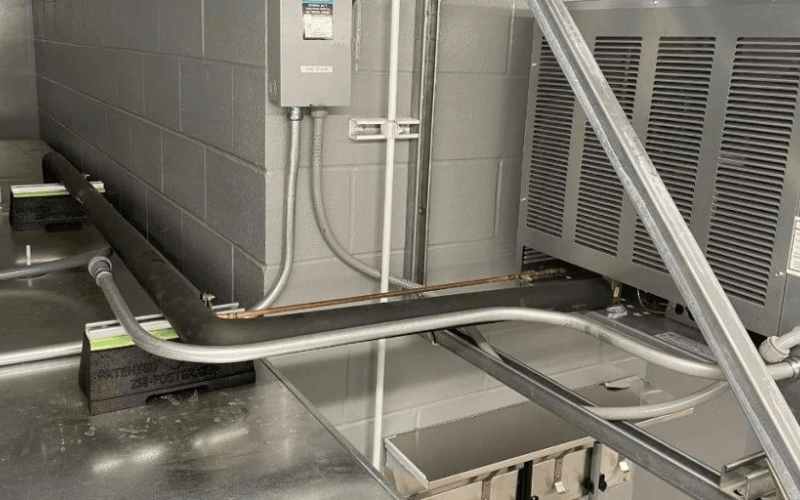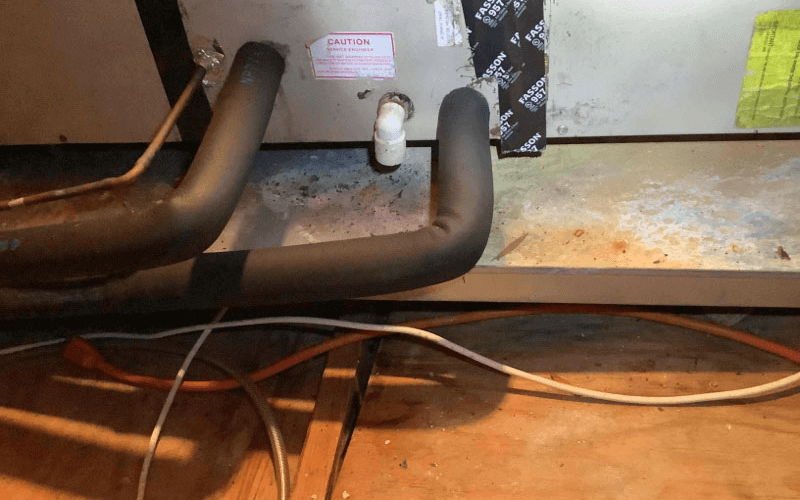If you notice your AC tripping the circuit breaker, it’s time to call an HVAC professional. It can happen for various reasons, each requiring a unique solution.
The air circuit breaker may trip because of insufficient energy from the AC circuit breaker or a problem with your house wiring.

Let’s look at the top five most common causes of an AC tripping the circuit breaker. Finding the source of the problem and allowing a professional to repair the AC can keep your family cool and safe this summer.
Table of Contents
ToggleAlso check: 5 PESTS THAT CAN DAMAGE YOUR HVAC SYSTEM
1. A Dirty Air Filter
If you notice your AC tripping the breaker while receiving too much heat outside, it could be due to a clogged air filter. The AC may overheat if the clear-out becomes blocked, and the circuit breaker may trip.
You may also discover that the AC isn’t always correctly cooling the house, making it difficult to function properly at low temperatures. Depending on how frequently you use your AC and where you live, you must change the air filters every month or after 3 months.
2. Dirty Condenser Coils
If the condenser coil is dirty, heat cannot be transferred from the inside of the house to the outside unit. It may cause an electrical short circuit, causing the AC to overheat. Even though it is turned on, the AC requires more energy to deplete the heat within the house, resulting in a short circuit.
The most commonplace causes of coil dirt are dirt, dust, and plant life buildup in the outdoor unit. Cleaning those coils will assist you in avoiding future AC problems!
3. Broken Coil Fan
Air conditioners use an inner fan known as a “coil fan” to provide cooling. It is usually powered by a motor located outside the house. This fan extracts heat from the indoor unit by blowing it away from the coil.
If the motors malfunction, they will use more electricity if they are wiped out over time or turned off during creative work, and the coil fan may also burn out sooner than expected.
Because there is insufficient energy from the circuit, a coil fan failure can cause the AC’s fan motor to pressure the breaker. This issue could be caused by flaws or missing components within the AC unit, which will increase current intake and trip the breaker.
4. Difficult to start the compressor
The compressor is a critical AC component and may cause start-up issues as it ages. If the circuit breaker continues to trip, contact an HVAC technician to have the current glide between the fan and the circuit checked. A working AC should be able to cool you down in about a second.
5. Loose Wiring and Old AC Parts
Your AC is a complicated wire tangle that keeps the whole system running. These wires can become loose and lose connectivity over time, causing circuit breakers to trip occasionally.
The circuit breaker might also trip due to excessive load on it. Is your AC and furnace running on the same circuit breaker? Check this as it may cause the circuit breaker to trip also.
Also check: 7 Signs It’s Time to Replace Your Air Duct
Resolve These Issues Today to Avoid Circuit Breaker Tripping Problem!
The above reasons may trip your circuit breaker frequently and cause problems. The tripping circuit breaker could also cause the air to leak from the AC vents even when closed. We suggest regular maintenance covering all the above reasons to avoid all the issues. K2 Mechanical offers a complete range of services, including air conditioning installation and maintenance. Feel free to make an appointment with us right away!





















